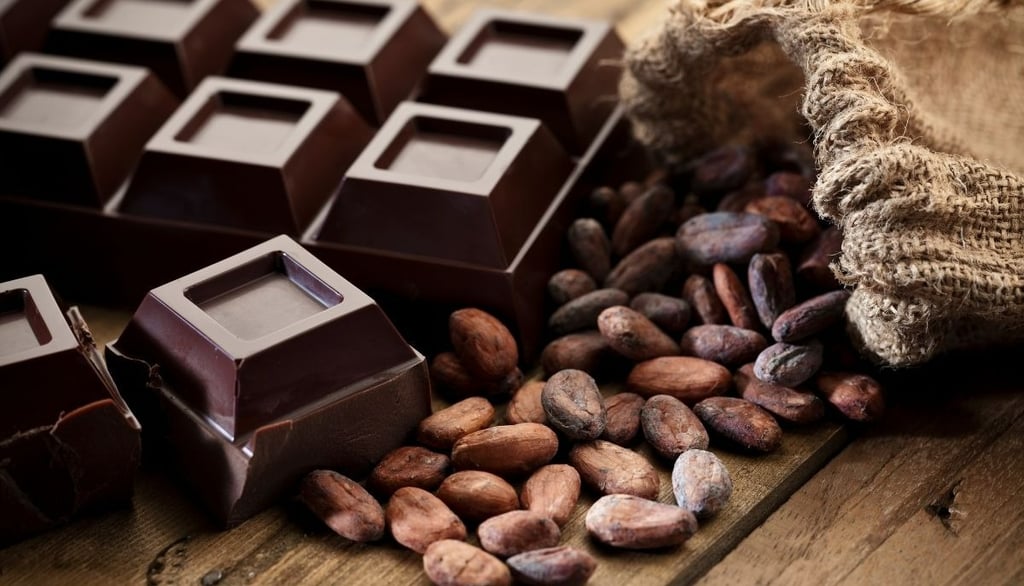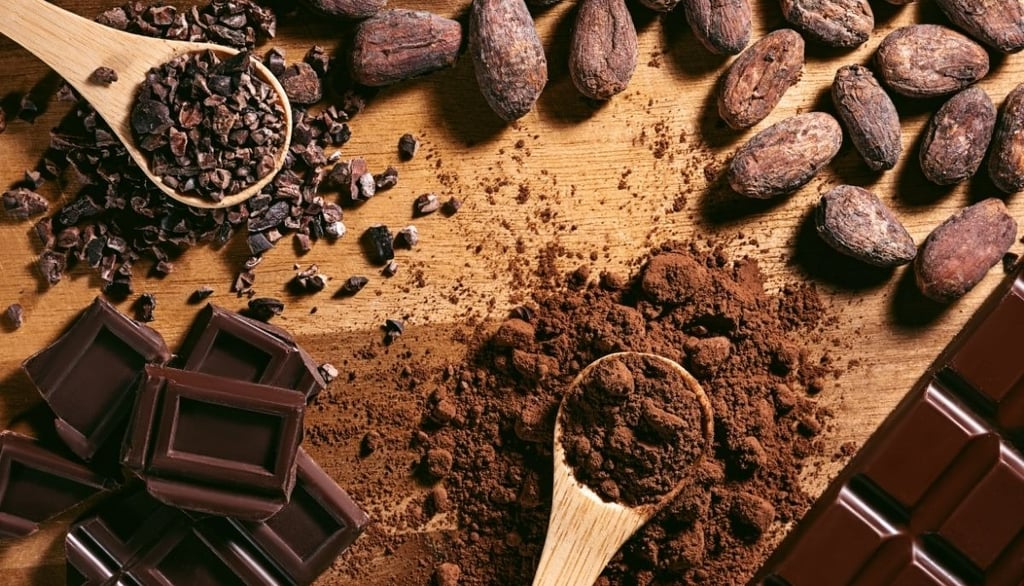Study Reveals Dark Chocolate's Role in Reducing Type 2 Diabetes Risk
Discover how vegan dark chocolate can reduce diabetes risk, its rich history, health benefits, and eco-friendly solutions to rising chocolate costs.
12/9/20243 min read


The Origins of Chocolate: A Journey Through History
Chocolate's captivating history begins with the ancient Mesoamerican civilizations, including the Olmecs, Mayans, and Aztecs, who revered cacao for its rich flavor and spiritual significance. The Aztecs even used cacao beans as currency and brewed a frothy, bitter drink called "xocolatl." When Spanish explorers introduced cacao to Europe in the 16th century, it was transformed into sweetened confections, evolving into the chocolate we love today.
The first modern chocolate recipe is credited to Coenraad Johannes van Houten, who in 1828 invented the cocoa press, separating cocoa butter from cocoa solids. This innovation laid the foundation for solid chocolate, which pioneers like Joseph Fry and Rudolf Lindt perfected.
Types of Chocolate: Understanding the Varieties
Chocolate comes in several forms, each with unique characteristics:
Dark Chocolate: High cocoa content, minimal sugar, rich in antioxidants.
Milk Chocolate: Creamy texture, contains milk powder and more sugar.
White Chocolate: Made with cocoa butter, sugar, and milk solids but lacks cocoa solids.
Ruby Chocolate: A newer variety with a fruity taste and pink hue from special cocoa beans.
Why Vegan Chocolate Stands Out
Vegan chocolate is crafted without animal-derived ingredients like milk, making it a healthier and eco-friendly choice. It often contains fewer additives and focuses on high cocoa content, preserving its natural antioxidants and reducing unnecessary sugars and fats.
The Health Benefits of Chocolate
Chocolate, especially dark varieties, offers numerous health benefits:
Rich in Antioxidants: Flavonoids combat oxidative stress and inflammation.
Improves Heart Health: Reduces blood pressure and improves vascular function.
Boosts Mood: Contains compounds like theobromine and phenylethylamine that promote feelings of happiness.
Read more: Is Stevia Natural and Healthy?


Dark Chocolate and Diabetes Risk Reduction
Recent findings from a study conducted by the Harvard T.H. Chan School of Public Health highlight the health benefits of dark chocolate in mitigating type 2 diabetes risk. This extensive research, involving over 111,000 participants and published in The BMJ, revealed that individuals consuming dark chocolate five or more times weekly experienced a 21% lower risk of developing type 2 diabetes than those who rarely or never consumed it. The study underscored the role of flavonoids—natural compounds in dark chocolate—that improve insulin sensitivity and reduce systemic inflammation, both key factors in diabetes prevention.
Interestingly, the benefits were unique to dark chocolate, as milk chocolate consumption showed no such protective effects.
Researchers attributed this to the higher polyphenol content in dark chocolate, which counterbalances the effects of sugars and fats found in chocolate products. Additionally, the study observed that for every serving of dark chocolate added to one’s weekly intake, there was a 3% incremental reduction in diabetes risk.
Moreover, the analysis incorporated data spanning over 30 years and considered other health variables, including weight management. Participants consuming dark chocolate also tended to maintain healthier body weights over time, which is crucial in diabetes prevention. The study emphasized the importance of moderation, suggesting that smaller, consistent servings of dark chocolate maximize health benefits without contributing to caloric overconsumption.
While these findings are promising, researchers caution that dark chocolate should be incorporated as part of a balanced diet rich in vegetables, fruits, and whole grains. Overconsumption could negate its benefits due to its caloric density and added sugars in commercial products. This research offers a compelling case for dark chocolate as a delicious yet functional dietary choice for improving metabolic health.
For further reading, refer to resources such as The BMJ, Medical News Today, and the Harvard T.H. Chan School of Public Health
Read more: David Montgomery and the Carrot


How Much Chocolate Should We Consume?
Moderation is key when incorporating dark chocolate into a healthy diet. Experts recommend:
Daily Portion: 1 ounce (about 28 grams) of dark chocolate with at least 85% cocoa.
Enhance Flavor: Pair with natural sweeteners like dates or raisins to balance its bitterness.
Rising Chocolate Prices: Causes and Solutions
The increasing cost of chocolate is driven by climate change, deforestation, and labor challenges in cocoa-producing regions. As chocolate production faces ecological and economic pressures, prices are projected to rise further.
How to Counteract Price Increases:
Sustainable Practices: Support brands committed to fair trade and eco-friendly farming.
Reduce Waste: Buy high-quality chocolate and savor it mindfully to minimize consumption.
Combat Global Warming: Reduce personal carbon footprints by adopting plant-based diets and conserving energy.
Conclusions: A Treat With Benefits
Dark chocolate is not just a delicious indulgence but a potent ally in improving health and combating diabetes. By choosing vegan and sustainable options, we can enjoy its benefits while supporting ethical practices and mitigating environmental challenges. Savoring dark chocolate mindfully allows us to embrace its flavors and health perks responsibly.
Pure Vegan Path
Explore plant-based living and delicious recipes.
Contact
Newsletter
info@pureveganpath.com
123-456-7890
© 2024. All rights reserved.
